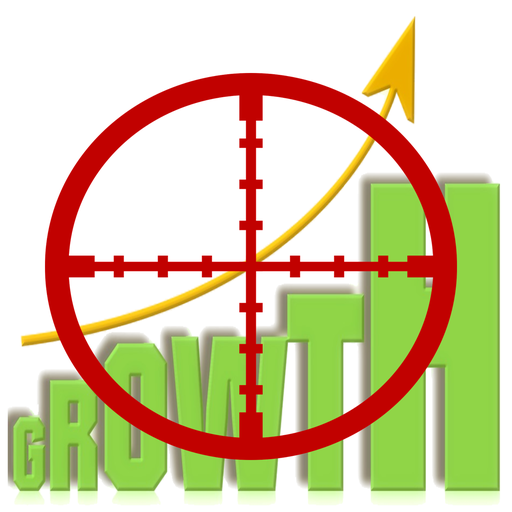Did you know that over 70% of small businesses say social media marketing significantly boosts their brand awareness and customer engagement? In today’s digital-first world, simply posting occasional updates isn’t enough—if you want real growth, you need a unified strategy. This guide unlocks the secrets of integrated social media marketing for small business , helping you go beyond the basics to achieve measurable results. Ready to discover proven steps, practical examples, and cutting-edge tips for success? Let’s dive in!
Why Integrated Social Media Marketing for Small Business is a Game-Changer
Did you know that over 70% of small businesses say social media marketing significantly boosts their brand awareness and customer engagement?
Discover how an integrated social media marketing approach goes beyond simple posts and likes—uniting digital marketing, content strategy, and all social media platforms for powerful business growth.

How Digital Marketing Shapes Integrated Social Media for Small Businesses
Digital marketing isn’t just about running ads or sending out email newsletters anymore. Integrated social media marketing for small business bridges digital marketing with every social platform—ensuring your brand’s message remains consistent across channels. By strategically tying your social media post to an overall content calendar and funneling users back to your website or store, you create a sustainable cycle for awareness and conversion.
Every piece of content—from blog posts to shared stories—serves to reinforce your brand awareness and move potential customers down the sales funnel. An integrated approach means using analytics from all platforms (Facebook, Instagram, LinkedIn, Twitter, and beyond) to inform your content strategy and digital campaigns, maximizing ROI and making your media marketing more efficient.
Key Benefits: Brand Awareness, Lead Generation, and ROI Growth with Integrated Social Media Marketing
The main draw of integrated social media marketing for small business is the ability to achieve more with less effort. Instead of siloed campaigns, you deliver a cohesive message, making your marketing campaign far more memorable. This boosts brand awareness , attracts high-quality leads, and—in the long term—delivers stronger ROI growth.
When you blend targeted social media efforts, creative content type variety (like video and interactive stories), and multi-channel outreach, you not only gain followers, but also convert them into loyal customers. By reviewing your social media analytics routinely, you’ll see which platforms and content perform best, letting you refine your marketing strategy for ongoing growth.
Core Elements of Integrated Social Media Marketing for Small Business
Key components include a unified content strategy, targeted digital marketing efforts, and smart usage of multiple media platforms.
Understanding Social Media Platforms and Choosing the Right Ones

Not all social media platforms are created equal—what works for one small business may not work for another. Each media platform has a distinct audience, content type preference, and engagement style. For example, Instagram’s focus on visuals benefits lifestyle brands and e-commerce, while LinkedIn suits B2B services aiming for thought leadership.
Choosing the right platforms is about knowing your target audience . Where do they spend their time? What kind of social media content do they interact with? By aligning your strategy with clear audience preferences, your integrated social media marketing will be laser-focused, driving more meaningful engagement and better business results.
Aligning Content Strategy and Brand Identity Across All Social Media
A winning content strategy requires more than just cohesive visuals—it means your messaging, tone, and brand personality stay consistent, regardless of the media platform . For small businesses, this is the key to building trust and professionalism. Each post, story, and video should reinforce your business’s values while encouraging your audience to take targeted actions, such as visiting your website or making a purchase.
Use branded templates, consistent color palettes, and repeatable hashtags to create a unified experience wherever a customer finds you online. This not only strengthens your brand awareness but also streamlines your workflow as you scale your social and digital marketing efforts.
Using Data and Analytics to Refine Your Social Media Marketing Strategy
Effective social media marketing for small business always leverages data. Social media analytics and dashboards offer crucial insights into what content resonates, which social channels drive the most traffic, and where your marketing strategy needs adjustment. By regularly monitoring KPIs (like engagement rates, click-throughs, and conversions), you move from guesswork to strategic decision-making.
Integrated analytics reveal your most effective posting times, your top-performing platforms, and even which hashtags foster the highest engagement. As you refine your social media marketing strategy, these insights empower you to optimize spending for both paid social and organic campaigns, ensuring maximum return on investment.
Comparison of Social Media Platforms: Features, Audience, and Suitability for Small Businesses | |||
Platform |
Main Features |
Typical Audience |
Best For Small Business |
|---|---|---|---|
Groups, Events, Paid Ads |
Adults, broad demographics |
Local business awareness, paid/organic growth |
|
Stories, Reels, Shopping Tags |
Younger adults, shoppers, creatives |
Product showcasing, influencer marketing |
|
Publishing, Groups, B2B Ads |
Professionals, B2B buyers |
Networking, B2B services |
|
Trending topics, Hashtags |
News seekers, brands, influencers |
Brand personality, real-time engagement |
|
TikTok |
Short videos, Trends, Challenges |
Gen Z, Millennials |
Viral campaigns, creative marketing |
Building a Winning Social Media Marketing Strategy for Small Businesses
Step-by-step guide to designing an integrated social media marketing strategy.
Setting Clear Goals and KPIs with Integrated Social Media Marketing

The foundation of any successful integrated social media marketing for small business begins with setting measurable goals and KPIs. Start by defining your core business goals—whether it’s increasing brand awareness, generating leads, or driving sales. Next, break these down into actionable metrics on each social media platform , such as follower growth, engagement rates, traffic sources, and direct conversions.
Use the SMART framework (Specific, Measurable, Achievable, Relevant, Time-bound) to give your team clarity and direction. For a small business, even modest KPIs—like earning 100 new followers per month or increasing website clicks by 10%—are invaluable for keeping your media marketing on track and measurable.
Identifying and Engaging Your Target Audience on Social Media
"Knowing your target audience is half the battle won in effective social media marketing."
Truly effective integrated social media marketing for small business starts with granular understanding of your target audience . Use demographic tools provided by major social media platforms to analyze your followers’ age, location, interests, and behaviors. This insight helps you craft content that genuinely resonates, increasing engagement while reducing wasted effort.
Move beyond surface-level interests. Survey your loyal customers, analyze your competitors’ audiences, and use social listening tools to uncover what your target audience is talking about online. By aligning your content and platform choices to these findings, you’ll see greater ROI in every marketing campaign and foster stronger community ties.
Selecting Social Media Platforms for Optimal Reach
For small businesses, spreading your efforts too thin can be counterproductive. Prioritize those social media platforms where your audience already spends their time. If your product is highly visual, focus on Instagram or TikTok; for professional services, double down on LinkedIn.
Evaluate competing platforms quarterly, experimenting as your business grows and audience behavior shifts. This flexibility is crucial in maintaining an effective social media presence and adapting your media marketing strategy to new opportunities.
Creating and Scheduling Content: Tools for Integrated Success
Consistency is the backbone of successful social media marketing . Scheduling tools like Buffer, Hootsuite, or Later allow busy teams to plan content weeks in advance, freeing up time for engagement and analytics review. With a unified content calendar, your media marketing strategy becomes organized, repeatable, and scalable.
Experiment with posting at different times and in varied formats (polls, reels, story highlights) to discover when your target audience is most active. Evaluate each media post’s performance to inform future decisions—over time, your integrated approach will become both art and science.
Crafting Compelling Content Strategy for Social Media Marketing
Types of content that work for small business: Video, Stories, Polls, Paid Social, and more.

Content Ideas and Calendar: Scheduling for Maximum Engagement
A robust content calendar is at the heart of every integrated social media marketing for small business. Mix evergreen topics (timeless advice or popular FAQs) with timely updates, promotions, and behind-the-scenes glimpses. Consider weekly themes or recurring content types—like #MondayMotivation or customer testimonials on Fridays—to keep your media presence fresh.
Use data to guide your schedule, avoiding dead zones and leveraging high-traffic periods. The best calendars are flexible yet disciplined, enabling your business to pivot quickly without ever going “dark” on any key media platform.
Video content offers dynamic engagement. A monthly example: Mondays for expert tips, Wednesdays for product demo videos, Fridays for live Q&As, with real-time stories and posts in between. Integrate platform trends and holiday events for added reach. Use weekly video series to drive return visits and higher engagement.
Rotate video lengths and formats—like stories, reels, tutorials, and customer shoutouts—to keep your marketing strategy varied and audience interest high.
Best Practices for Content Strategy Across Media Platforms
Your content strategy needs to leverage each platform’s unique strengths while maintaining your business’s voice and branding. A single blog post can become an Instagram quote card, a Twitter thread, or a LinkedIn article. Always optimize formats, visuals, and copy for specific platform expectations.
Don’t forget A/B testing and tracking for every content type. Regularly review the analytics: what drove clicks, shares, or sales? Use these findings to tweak not just your next media post, but your entire content calendar, ensuring consistent improvement and ROI.
Maximizing Impact through Effective Social Media Marketing Campaigns
Integrating Paid Social and Organic Outreach for Small Businesses
A balanced approach to media marketing combines organic outreach (like engaging posts, community replies, and user-generated content) with targeted paid social media promotions. For small businesses with limited budgets, start with “boosting” high-performing organic posts to reach a wider audience, then scale campaigns on platforms where you get the most traction.
Experiment with paid social including Facebook ads, LinkedIn sponsored content, or Instagram shopping tags. Always align creative with your organic brand voice to foster greater trust and engagement.
Cost Comparison: Paid vs. Organic Social Media Marketing for Small Business | ||||
Approach |
Cost |
Reach |
Sustainability |
ROI Potential |
|---|---|---|---|---|
Organic |
Low (time and content creation) |
Limited, but loyal |
High (long-term) |
Steady growth |
Paid Social |
Variable (ad budget) |
Broad & targetable |
Short/Medium term |
Fast, measurable results |

Tracking, Measuring, and Optimizing Media Marketing Campaigns
Ongoing optimization is essential to effective social media marketing for small businesses. Use social media analytics tools to set benchmarks, track campaign performance, and test new ideas. Monitor click-through rates, social shares, comments, and, most importantly, conversions.
Regularly review your current marketing campaigns. Tweaking your targeting, creative, or ad spend—even slightly—can yield huge performance improvements. Every marketing campaign is a chance to gather insights and streamline future efforts for your small business.
Advanced Techniques: Automation, AI, and Influencer Media Marketing
How Automation Tools Streamline Integrated Social Media Marketing for Small Business

Automation tools are a game changer for busy small business owners. Platforms like Zapier or Sprout Social allow schedule automation of posts, real-time content distribution, and instant replies to common inquiries. By reducing manual tasks, you free up time for strategic growth, such as analyzing which content type best fuels your business goals.
Whether automating your content calendar, customer responses, or analytics reporting, these tools make integrated social media marketing more efficient while reducing human error.
Leveraging AI for Personalized Content and Target Audience Engagement
Artificial Intelligence is transforming integrated social media marketing for small business, enabling personalized messaging at scale. AI tools analyze audience behavior, segment users, and suggest tailored content for each stage in your funnel.
Use AI-driven insights to automate A/B testing, recommend content, or even generate social media post copy—ensuring every message is timely, fresh, and effective.
Partnering with Influencers: Best Practices for Media Marketing Success
"Automation doesn’t replace creativity—it enhances your ability to deliver the right content at the right time."
Micro-influencers and local ambassadors can greatly expand your media reach. Start small by partnering with influencers whose value aligns with your small business. Negotiate collaborations—like product swaps or co-hosted events—to get authentic engagement and cost-effective exposure.
Always vet influencers for audience authenticity and brand fit. Provide creative freedom, clear guidelines, and regular campaign feedback to ensure mutual benefit and sustained success.
Ensuring Compliance and Building Trust in Digital Media Marketing
Key legal considerations, data privacy, and building user trust on social media platforms.
Brand Awareness and Social Proof: Creating Credibility for Small Business

Positive reviews, case studies, and customer testimonials serve as powerful social proof, rapidly boosting brand awareness and trust in your small business. Integrate these elements into your content strategy and campaign workflows for maximum credibility across all media platforms.
Encourage satisfied customers to share their experience with your product or service using branded hashtags or photo contests. Each new post extends your reach and acts as a trusted referral to potential clients.
Navigating Legal Requirements and Protecting Customer Data in Digital Marketing
Data privacy and legal transparency are no longer optional in digital marketing . Familiarize yourself with FTC guidelines on sponsored content and local data protection laws (like GDPR or CCPA in the US). Make every marketing campaign opt-in and fully transparent.
Educate your team about privacy best practices, such as using secure data storage and only collecting customer information with explicit consent. By being proactive about compliance, you safeguard your business from costly mistakes and build lifelong customer loyalty.
"Trust is the foundation of a strong social media presence for any small business."
What You'll Learn with Integrated Social Media Marketing for Small Business
What integrated social media marketing is and why it matters for small business growth
Step-by-step methods to build a strong media marketing strategy
How to select content and social media platforms for best results
Advanced tools and metrics for optimizing your campaigns
How to protect your reputation and earn customer trust with digital marketing
Quick Reference: Proven Social Media Marketing Strategies for Small Businesses
Define targeted, measurable goals for each social media platform
Develop a unified content strategy that supports your small business mission
Focus on both paid social and organic engagement tactics
Utilize analytics tools to adjust your media marketing strategy in real time
Collaborate with influencers and brand advocates for wider reach
People Also Ask: Insights on Integrated Social Media Marketing for Small Business
What is the 5 5 5 rule on social media?
The 5 5 5 rule suggests posting five updates about your own content, five about others, and five personal interactions per week to create a balanced and engaging social media presence for small businesses.
What is the 70/20/10 rule for social media?
The 70/20/10 rule for social media marketing recommends that 70% of your content adds value to your audience, 20% is shared from others in your media platform community, and 10% is promotional. This mix supports both engagement and business goals.
What are the best social media marketing strategies for small businesses?
The best strategies blend clear targeting, consistent brand messaging across platforms, a mix of paid and organic tactics, content tailored to your target audience, and ongoing measurement of marketing campaigns.
What is the 50 30 20 rule for social media?
This rule allocates 50% of your content to inspiration, 30% to information/education, and 20% to promotions or calls to action—ideal for integrated social media marketing for small businesses.
FAQs on Integrated Social Media Marketing for Small Business
How do I find the right social media platform for my business? Start with your core audience—review demographics, interests, and behaviors on each social media platform. Test multiple platforms, track results, and focus your resources on those with the highest engagement and conversions for your business.
What kind of content gets the most engagement on media platforms? Short videos, authentic behind-the-scenes looks, interactive polls, stories, and user-generated content often yield high engagement. Experiment to find what resonates best with your target audience and blends with your overall content strategy.
What analytics should I track to improve my digital marketing efforts? Monitor engagement rates, click-throughs, conversion rates, follower growth, and top-performing content. Use analytics dashboards from each media platform to spot trends and optimize your marketing strategy in real time.
How can small businesses stand out with integrated social media marketing? Focus on brand consistency, unique storytelling, and meaningful interactions. Use data and automation to personalize content for your target audience, and partner with micro-influencers to expand your social reach.
What’s the difference between media marketing and traditional digital marketing? Media marketing is focused on building communities and engagement on social platforms, while traditional digital marketing includes websites, search ads, and email. Integrated social media marketing offers a dynamic, two-way connection with customers, accelerating trust and brand awareness.
Actionable Steps for Small Businesses Starting Integrated Social Media Marketing
Assess your current media marketing presence and set specific objectives
Research your target audience and competitors on digital and social media platforms
Plan and create a cross-platform content strategy calendar
Leverage automation and analytics to improve every marketing campaign
Build and monitor your brand reputation with consistent engagement
Real-World Case Study: Integrated Social Media Marketing Success
An in-depth example of how a small business used integrated social media marketing to double its online visibility and engagement across multiple platforms.
Your Next Steps to Unlock Integrated Social Media Marketing for Small Business
Boost Your Reach, Visibility, & Credibility! Streamline your Social Media, Video, Email, and Digital Marketing into One Results-Driven Strategy. Get your TrustSignal Analysis via https://bit.ly/TrustSignalAnalysis
Take action now—modernize your marketing strategy, grow your reach, and turn your small business into a trusted digital powerhouse!
To enhance your understanding of integrated social media marketing for small businesses, consider exploring the following resources:
“Social Media Marketing for Small Businesses: A Complete Guide” ( socialpilot.co )
This comprehensive guide offers actionable strategies tailored for small businesses, including tips on content creation, platform selection, and leveraging analytics to optimize your social media efforts.
“Social Media Marketing for Small Businesses” ( dashsocial.com )
This article provides insights into effective social media marketing techniques, emphasizing the importance of community management, social commerce, and collaboration with local influencers to enhance brand visibility and engagement.
By delving into these resources, you’ll gain valuable insights and practical tips to develop a cohesive and effective social media marketing strategy for your small business.
 Add Row
Add Row  Add
Add 




Write A Comment